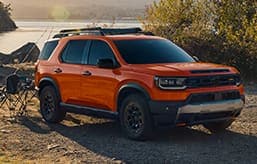- It's official: Tesla will open up its charging network to other brands' EVs.
- The expansion comes thanks to the $7.5 billion the bipartisan infrastructure law allotted for EV charging.
- Other brands have committed to opening up more charging stations, too.
White House: Tesla Will Open Up Supercharger Network to Other EVs
This is a long time coming, and a huge boon for EV owners
The White House has officially announced new details on how and when Tesla will open up its Supercharger network to other EVs. We reported on this last July, and opening up Tesla's charging network has long been talked about but never quite acted on by Tesla itself. The memo released today finally gives more clarity on the framework that the Biden administration set up for Tesla's move, the funding for which came from the $7.5 billion the bipartisan infrastructure law allotted for EV charging.
The fact sheet says in part that Tesla will "open a portion of its U.S. Supercharger and Destination Charger network to non-Tesla EVs." Destination chargers and Supercharger stations aren't the same, and the difference largely comes down to the speed at which the two sites can charge up an EV. Destination chargers are Level 2 AC charging stations that can supply a charging rate of up to 16 kW. Superchargers, on the other hand, are DC fast-charging stations and can charge at rates up to 250 kW. The goal is for Tesla to make "at least" 7,500 chargers available to other EVs by the end of 2024.
That number includes 3,500 new and existing 250-kW Supercharger stations along highway corridors across the U.S. Destination chargers will be placed at hotels and restaurants in urban and rural locales, where a vehicle would naturally charge over a longer period of time. On top of that, Tesla will double the size of its Supercharger network, which the administration was happy to point out features chargers that are manufactured in Buffalo, New York.
Other brands like Hertz, BP, Pilot Co., General Motors and EVgo are also all mentioned in the memo, too, and have committed to adding chargers at various locations, many of which are along major American highways. Some of these chargers will be capable of delivering electricity at rates of 350 kW — quite a bit more than the most powerful Tesla Superchargers but only accepted by a few EVs that are currently on sale.
Edmunds says
This is a huge win for anyone who has already bought or is interested in an EV.






 by
by